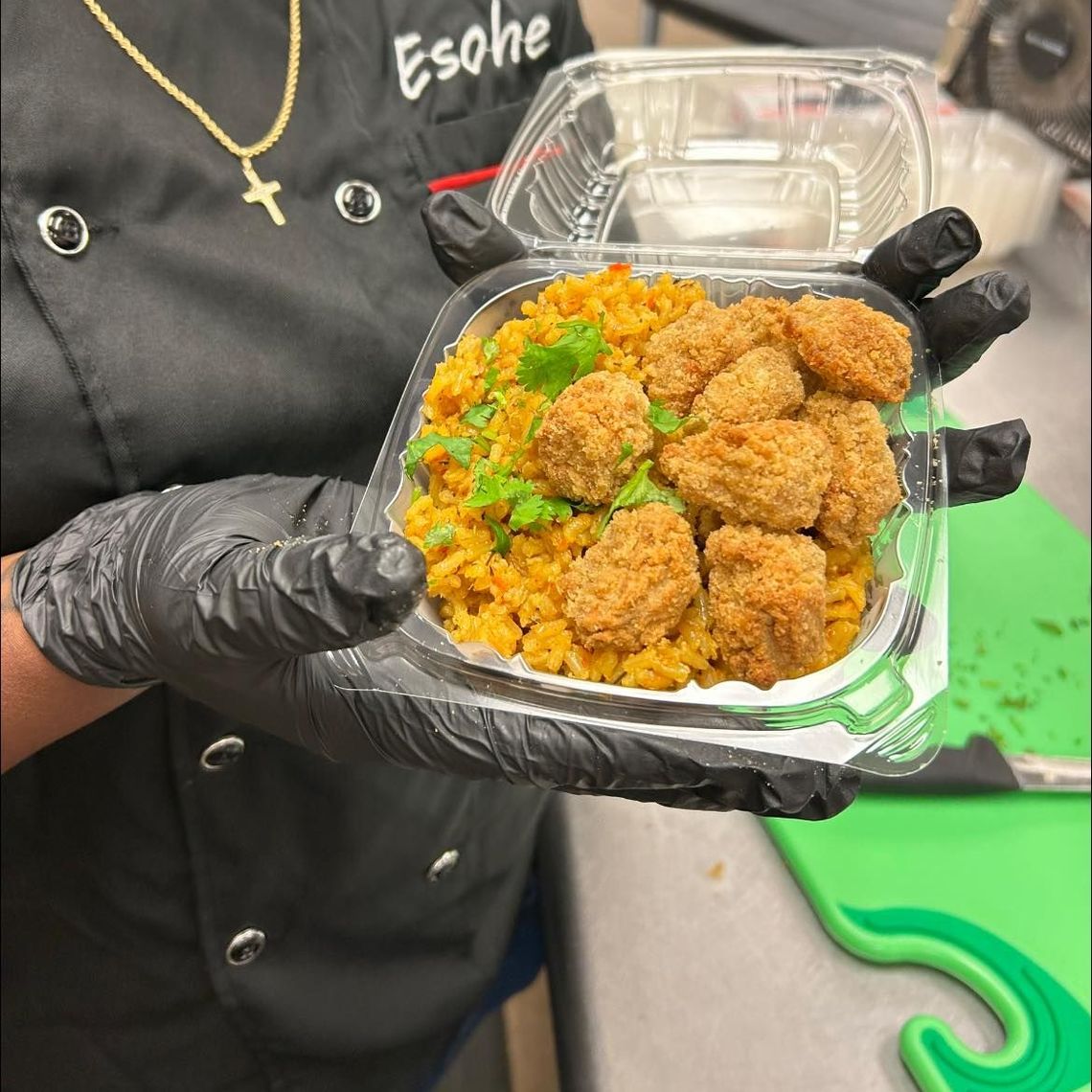Celebrating Diversity in School Meals: The Journey of Jollof Rice
Sherry Hughes
Project Bread Sherry Hughes shares a firsthand perspective on bringing the flavors of Nigeria to Lowell Public Schools, working hand-in-hand with school nutrition staff.
When I describe to people what I do for a living, they generally respond by telling me I have a cool job or expressing their gratitude for Project Bread’s work around the state.
As a Chef Educator, I travel to different school districts and support school nutrition staff members in a number of ways: working as a team, knife skills, recipe development, how to use new equipment, and how to make more culturally appropriate meals. That last part – about culturally appropriate meals? That always leads to follow-up questions.
The reality is that many districts in Massachusetts have very diverse populations and school lunches don’t always reflect that diversity. As a team (I work with two other chefs), we go to schools and work closely with kitchen staff members to introduce new flavors, and recipes and to help them develop their own signature spice blends. We also assist when they want to bring a particular recipe to the students.

One cook at the McAvinnue School in Lowell asked why there was no African food on the menu. Esohe is a beloved member of the staff and moved to the U.S. with her parents from Nigeria when she was a young girl. Lowell has a very diverse population, and there were absolutely students from Africa in the school.
I took some time to talk with Esohe about possible recipes we could try and we decided on jollof rice, a staple in most homes in Nigeria and in West Africa. The recipe is made with rice cooked in a pepper sauce with tomatoes and lots of bold flavors, such as ginger, garlic, curry powder, cumin, and turmeric.
In the following weeks, I made the jollof rice for the staffers to try and then for the students to try. Staff members gave it the stamp of approval.
Next, we held taste tests with the students. Esohe came out and helped hand out the rice samples. She told the students “This is from Nigeria, my home country.” The students love Esohe. She has a very pleasant demeanor and is kind to the students. They trusted her and that made the students really want to try the rice.
McAvinnue Elementary School is a grade school and the kitchen serves roughly 400 lunches to students each day. We served 270 samples with the students and we had no negative comments. We had some great comments as well, such as “This is what my mom makes for me!” and “I love this. I would eat this all day.” And “This is delicious!”
Soon, we hope to put this on the menu, district-wide, in Lowell.
We know that students can be picky. But we also know that if we pull in one of the cooks to help introduce new flavors, it’s a win/win for everyone. The staffer that participates has some agency in terms of what the food looks and tastes like.

After we gather the comments and add any last-minute changes, we choose a date for the rice to be on the menu.
Esohe is proud to serve food from her home country to the students; the students love the rice and they love Esohe. And when it comes to food, we know that when served foods that are familiar to students, students will not only eat those foods but enjoy them.
While serving the samples, we came across many students who loved the rice because it was familiar to them. One student summed it up by calling the rice “deliciously flavorful,” and Esohe was delighted.
We're Making School Meals a Cultural Experience
Food connects so strongly to culture and family that kids are proud and excited to see their favorite dishes from home being served for lunch at school. One of our goals is to represent the diverse communities in Massachusetts schools through food, celebrating cuisines from all over the world. This way, school meals are an exciting cultural experience.
In the sound clip below, Project Bread Director of Community Nutrition Services Sam Icklan talks about African cuisine with Jaylen, a 2nd grade student, and how being served a dish at school would make them feel.